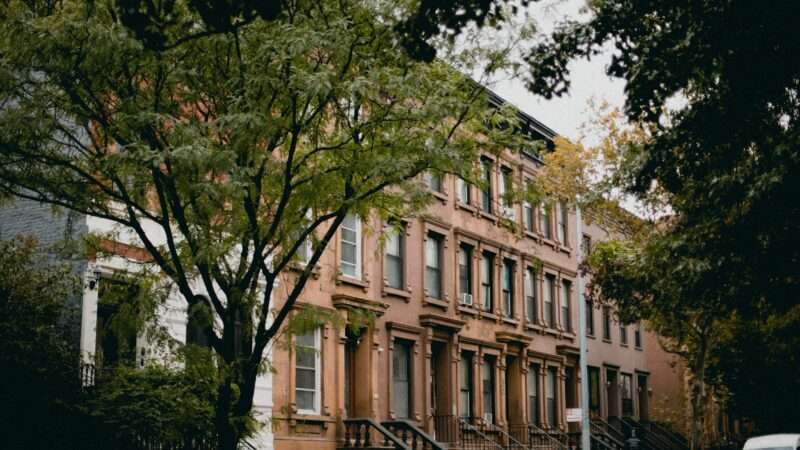
Have you ever stayed at an Airbnb where you had the full unit to yourself, where the owner was not present? Have you ever stayed at one with a spouse and a child, or two friends?
In New York City, such arrangements will no longer be allowed. Local Law 18 came into effect Tuesday. It effectively makes the city’s roughly 38,500 Airbnb listings illegal.
“Short-term rentals [30 days or under] are only permitted if the host is staying in the same unit or apartment as the guests, and there are no more than two guests staying with the host,” says the city, which dictates that hosts “maintain a common household” with guests and that they register their short-term rental with the government, paying a $145 fee. Guests must have “free and unobstructed access to every room, and each exit within the apartment.”
“For this reason, locking internal doors is not permitted,” reports The Washington Post, “though hosts and guests can secure bathrooms, bedrooms and other private quarters when they are in use,” per the law.
Many scenarios will now be banned due to Local Law 18. A property owner who rents out their apartment for three weeks while traveling will no longer be able to do so; a family who seeks to rent a full unit, with multiple bedrooms, will no longer be able to do so.
Homeowners like Julian Ehrhardt see this as an assault on their property rights. Ehrhardt bought his home in Brooklyn’s Bedford-Stuyvesant neighborhood back in 2017. He restored the derelict property “with a lot of pride,” Ehrhardt tells Reason, and started renting out one of the units while living in the other. Having hosted over 200 guests from all over the world, Ehrhardt talks warmly about watching foreigners experience his neighborhood. “The origins of the housing crisis are far more nuanced,” he says, “than people renting out spare rooms.”
“The concern for many homeowners is maintaining the mortgage payments” now that Local Law 18 has gone into effect, he says. “There were a lot of hosts who were retired, who had their homes inherited, who don’t have the means” who will be affected by the new restrictions. Ehrhardt is part of a group called RHOAR NYC (Restore Homeowner Autonomy & Rights), a grassroots group that’s trying to amend the law “to exempt owner occupied one- and two-family homes” and to remove the capacity limit so they can have the freedom to rent out their homes again, per their website. “The law and implementation of Local Law 18 takes away our autonomy over our homes and puts us at acute financial and personal risk,” says RHOAR.
I live in Bed-Stuy, too. When my large family visits, they typically stay at an Airbnb townhouse that’s 0.6 miles away from my apartment. I priced out how much they would need to spend for a comparable stay at a decent hotel—putting them two to three miles away, since Bed-Stuy has very few decent hotels—and it was double the price. Many others have chimed in with their personal stories of how short-term rentals have made trips to New York feasible for their families. If every visit becomes twice as expensive, why would anyone come to this rat-infested metropolis?
The law is a gift to the hotel industry. But hotels aren’t always affordable, nor do they allow travelers to stay in off-the-beaten-path neighborhoods. (As for hostels, they were banned 13 years ago.) There’s no reason why the city should let the politically powerful incumbent be locked into an advantage; facing some competition from short-term rental platforms may be a good thing in terms of forcing prices down.
“Council members are scared to vote against the [hotel] unions,” says Ehrhardt. Groups like the Coalition Against Illegal Hotels have mobilized to oppose any change to Local Law 18; they cite San Francisco—which is notoriously unaffordable for both residents and travelers—as an example of a place where short-term rental regulations have snuffed out “illegal hotel activity” and as a model worth emulating.
Supporters of Local Law 18 claim short-term rentals are to blame for New York’s housing affordability issues. The far greater problem is how difficult it is to build new housing stock in a city that heaps on onerous permitting restrictions and has for too long allowed lots of “not in my backyard” (NIMBY) veto power. In fact, New York is far less dense with Airbnbs than other cities, points out the Cato Institute’s Scott Lincicome. And cities need all different types of housing configurations at all different prices in all different neighborhoods, not controlled by central planners, but subject to the changing needs of market participants. All this aside, even if short-term rentals were squarely to blame for a housing supply crunch, infringing on the rights of property owners is a terrible precedent to set.
This year, New York City expects to receive 61 million tourists, up from 56 million last year and inching much closer to pre-pandemic levels (66.6 million in 2019). But city officials are biting the hands that feed: both the tourists who help power the economy—whether residents like it or not—and the taxpaying landlords who provide housing options to willing buyers at rates all parties accept.
“I think the hotel lobby has done a very effective comms job—labeling us as wealthy landlords was very effective,” says Ehrhardt, who seeks to comply with the law.
“The city is treating our private property as the city’s housing stock.”
The post Did NYC Just Kneecap Airbnb? appeared first on Reason.com.
from Latest https://ift.tt/lDp0Ijh
via IFTTT